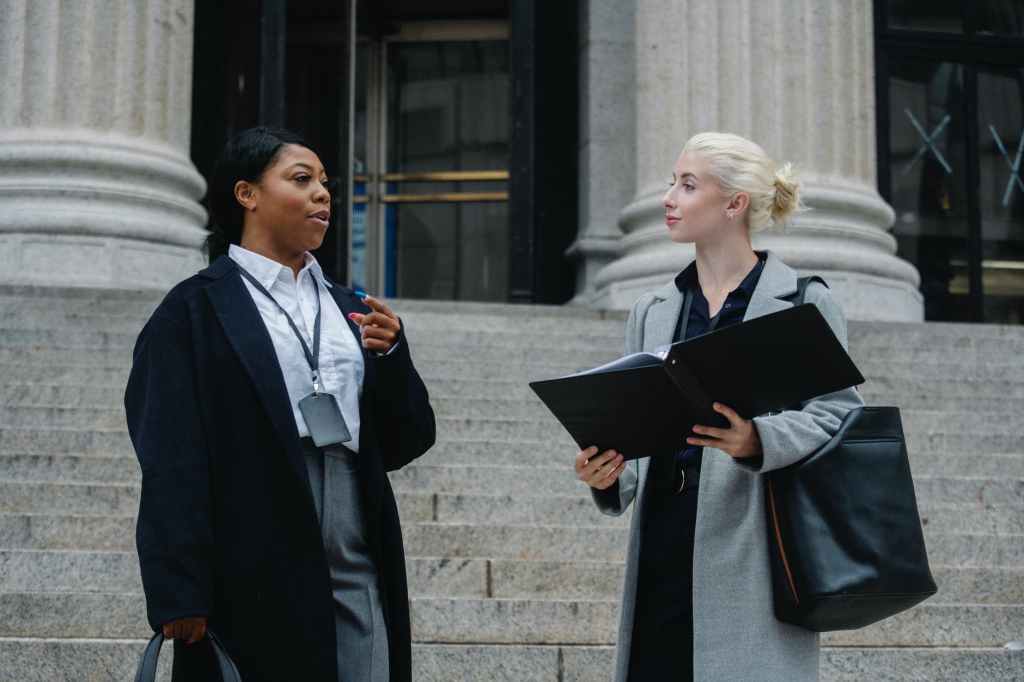Visualise an examination in chief like building a wall (made up of the bricks of relevant facts and facts in issue).
Imagine cross examination as trying to punch holes in that wall by incisive questioning and exposing falsehood, inconsistent statements, impeaching the credibility and veracity of the witness, culling out admissions, etc. etc.
We all know that in cross examination one avoids journalistic-type questions such as : what, why, where, when, so as to not allow the witness to spin a story and explain matters. The witness has to be kept on a tight leash.
What you ask him instead (mostly!) are ‘leading questions’. Questions which have an answer implicit and which the witness can answer with a simple Yes, or No. (For instance, “At the time of the incident – you were standing near the railway line, right?”)
What is also often asked in cross examination are a species of statements called ‘suggestions’.
A suggestion is essentially the cross-examiner’s version/case on the facts at hand. For instance : “I put it to you that you are deposing falsely at the behest of the police because you are a stock witness?” or “I put it to you that you did not witness the incident because you were in a different city at that time”.
The witness, in all probability, denies these as incorrect suggestions and the answers are recorded as “It is wrong to suggest that I am deposing falsely as I am a stock witness …….” and “It is wrong to suggest that I did not witness the incident as I was…..”
What is the use of these suggestions – then, you ask?
Well, their utility in modern times is quite suspect as most of the times the witness denies these suggestions. However, the rationale of giving suggestions seems to be : to set out, for the appreciation of the court, the defence version/narrative in as many words. Pertinently, this may be important as there are no pleadings (strictly speaking!) in criminal trials and accused’s precise stand is not before the Court till the examination of accused u/s 313 CrPC or when and if the accused chooses to enter the witness box as a defence witness.
The requirement of giving suggestions in criminal cases should, therefore, be seriously considered as there is a line of judgments that says that if a factual narrative/version is not to put to the witness as a suggestion, or if prosecution version is not challenged/refuted by way of suggestions during cross examination, the same is taken to have been admitted and cannot be argued/relied upon at the time of appreciation of evidence. (Though there are contra judgments too!). But do read this with a caveat that giving suggestions sometime is dangerous too, especially if the Court freely allows the witness to explain (volunteering, as it’s called, where the witness does not only say ‘Yes’ or “No’ to the question but goes on to explain. This is an undesirable practice and should be controlled more. More on this some other day!). Back to how suggestions can be damaging. Picture this : if important and damning admissions have been elicited from the witness during cross examination, then giving suggestions at the end may give the witness an opportunity to explain (as the witness becomes wiser during the cross examination). So be very very careful while giving suggestions.
In civil cases suggestions are not considered necessary as the pleadings of the parties are already there before the Court where the respective cases of the parties are set out in great detail. So, suggestions, it seems, are not necessary in civil cases. (reliance may be placed on Sher Mohammad v. Mohan Magotra, 2013 SCC Online Del 2530)
Sources/Further reading:
- Sher Mohammad v. Mohan Magotra, 2013 SCC Online Del 2530.
- Tarun Bora Alias Alok Hazarika v State of Assam (2002) 7 SCC 39
PS : There is a contra view to Sher Mohammad also which may be found in Sa v. AA (22nd March, 2016 Judgment by a Ld.Single Judge, Delhi High Court), which, in turn, relies on earlier SC judgments to argue that a distinction between civil and criminal cases cannot be made and Sher Mohammad may be per incuriam.
Having said that, in my humble opinion, the view expressed in Sher Mohammad is the more sound and practical view, especially given the nature of pleadings these days in civil cases and the fact that parties’ testimony comes on an affidavit which is quite comprehensive. The requirement of suggestions may be a relic of the past as far as civil cases are concerned (when examination in chief used to take place in witness box) and would do little to help matters and greatly delay trials. Also, the fine distinction between failure to cross examine and giving suggestions should also be appreciated.
Thanks to Ms.Sushmita Chaudhury for the very insightful comment below

Leave a Reply